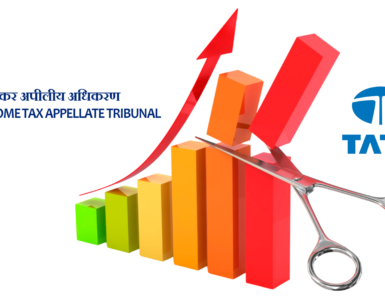Brief Facts:
- The Taxpayer, an Indian company engaged in the business of manufacturing of jeeps, entered into an agreement with a supplier based in USA (US Co) for purchase of tooling and other equipment for
- manufacture of jeeps (capital equipment).
- The US Co supplied the capital equipment through its US subsidiary. Further, for procurement of the capital equipment, US Co also provided an interest-bearing loan to the Taxpayer, repayable after 10 years in installments.
- The Taxpayer capitalized the equipment in its books and claimed depreciation thereon in its tax computation.
- Subsequently, another US entity acquired US Co and also agreed to waive off the principal amount of loan advanced by US Co to the Taxpayer.
- The Taxpayer claimed the principal amount of loan waived as capital receipt not taxable under the ITL. But the Tax Authority treated the waiver amount as Taxpayer’s business income.
- The First Appellate Authority ruled in favour of the Tax Authority with certain modifications. On further appeal, the Mumbai Tribunal and the Bombay High Court (HC) ruled in favour of the Taxpayer and held that the waiver was neither taxable as business perquisite nor taxable under the clawback provision.
- Being aggrieved, the Tax Authority appealed further to the Supreme Court.
Question:
- Whether the amount of loan waived can be taxed as business prerequisite?
- Whether the amount of loan waived can be taxed as income as per the provisions of Section 41(1) of Income Tax 1961?
Supreme Court’s Ruling:
Part 1
- The term “loan” generally refers to borrowing something, especially a sum of cash that is to be paid back along with the interest decided mutually by the parties.
- In other terms, the debtor is under a liability to pay back the principal amount along with the agreed rate of interest within a stipulated time.
- It is a well-settled principle that creditor or his successor may exercise their “Right of Waiver” unilaterally to absolve the debtor from his liability to repay. After such exercise, the debtor is deemed to be absolved from the liability of repayment of loan subject to the conditions of waiver.
- The waiver may be a partly waiver i.e., waiver of part of the principal or interest repayable, or a complete waiver of both the loan as well as interest amounts. Hence, waiver of loan by the creditor results in the debtor having extra cash in his hand. It is receipt in the hands of the debtor/assessee.
- The short but cogent issue in the instant case arises whether waiver of loan by the creditor is taxable as a perquisite under Section 28 (iv) of the IT Act. Also, A plain reading of the provision of Section 28 (iv) of the IT Act makes it prima facie apparent that the income which can be taxed should arise from business or profession, the benefit which is received has to be in some other form rather than in the shape of money.
- In the present case, the Taxpayer has received the benefit in the form of cash receipt due to the waiver of loan and, hence, the very first condition of the business perquisite provision that the benefit should be in the form other than in the shape of money is not satisfied. Therefore, the amount of loan waived cannot be taxed as business perquisite.
Part 2
- The purchase cost represented capital asset of the Taxpayer. The Taxpayer did not debit the cost of capital equipment to the Trading account or to the P&L in any of the tax years.
- There is difference between “trading liability” and “other liability”. The provisions of Section 41(1) deals with remission of trading liability. Whereas in the instant case, waiver of loan amounts to cessation of liability other than trading liability. Hence, remission of loan in the present case cannot be taxed under the said provision.
Therefore, ruled in favour of the assessee, the Supreme Court held that the amount of loan waived was neither a business perquisite nor taxable under the provisions of Section 41(1) of the Income Tax Act 1961.
Some noteworthy points:
The Madras HC in the case of Ramaniyam Homes Pvt. Ltd. ruled that a waiver of loan even for acquiring capital assets is taxable as business perquisite. On the question of taxability of waiver of principal portion of term loan, the HC held that the same should have been taxable under section 28(iv) of the Act.
- The HC differed from the reasoning given in the co-ordinate bench ruling that section 28(iv) dealt only with a benefit or perquisite received in kind, and not to any transaction involving money.
- The HC also remarked that the Delhi HC had not taken note of the above-mentioned fallacy while deciding the issue in the case of Rollatainers.
- Waiver of a portion of the loan would tantamount to a benefit. The HC had dissected the language used in section 28(iv) to hold that the benefit may not arise from ‘the business’ of the taxpayer, but it certainly arose from ‘business’. The HC had also given weightage to the absence of the prefix, ‘the’ to the word ‘business’ while deciding the issue. It categorically held that the absence of the prefix, ‘the’ to the word ‘business’ made a world of a difference.
- While differing from the co-ordinate bench ruling, the HC also observed that there was no distinction between waiver of loan taken for acquiring a capital asset and waiver of loan taken for trading activities in accounting practice, and that such waiver would either be credited to profit and loss account or to the capital reserve.
Recently, the Mumbai Bench of the Income-tax Appellate Tribunal (the Tribunal) in the case of JSW Steel Limited (the taxpayer) held that capital surplus in respect of waiver of loan amount cannot be regarded as amount available for distribution through the profit and loss account. A mere disclosure of an extraordinary item in the profit and loss account does not mean that the said item represents the ‘working result’ of the company. Accordingly, it has been held that waiver of loan being capital receipt cannot be taxed as ‘book profit’ as envisaged under the provisions of Section 115JB of the Income-tax Act, 1961 (the Act).
- On perusal of various decisions, it indicates that on similar nature of issues there are divergent views of various benches of the Tribunal. However, one common point/ratio permitting through all the decisions is that if the taxpayer is in receipt of a ‘capital receipt’, it does not fall within any of the charging section or can be classified under any heads of income under the Act.
- The same cannot be treated as part of net profit as per profit and loss account or reckoned as ‘working result’ of the company of the relevant previous year and consequently, cannot be held to be taxable as ‘book profit’ under Minimum Alternate Tax (MAT) in terms of Section 115JB of the Act.
- Accordingly, the capital surplus on account of waiver of dues is neither taxable nor can be included in the computation of book profit under Section 115JB of the Act.




